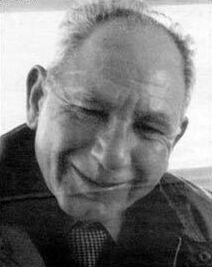Syrian Democratic People's Party
This article needs additional citations for verification. (December 2009) |
Syrian Democratic People's Party حزب الشعب الديمقراطي السوري | |
|---|---|
Centre-left | |
| National affiliation | National Democratic Rally |
| International affiliation | Progressive Alliance[1] |
| Colors | Red |
| Website | |
| www | |

The Syrian Democratic People's Party (
The party emerged in 1973 from a split within the
Origins and split from the SCP
The party was formed from a split in the
In opposition
The party was able to operate reasonably effectively at first, although it was never very large, and for some time it negotiated over conditions of joining the NPF. However, Syria's intervention on the side of the
It also, while itself renouncing violence, advocated dialogue with the
After the death of Hafez Al-Assad
The party benefitted from the decreased political repression of the last two years of
Riyad al-Turk was arrested as the government stamped out most of this activity in the autumn of 2001, when he outraged the government's sensibilities by remarking on television that "the dictator has died", in reference to Hafiz al-Asad. He was imprisoned, but later released following international pressure.
In 2005, the party held its clandestine sixth conference at which it adopted new rules and changed its name to the Syrian Democratic People's Party, signalling its adoption of western-style
The same year, party activists co-founded the Damascus Declaration, a coalition of parties, human rights groups and pro-democracy activists named for their document demanding the country's transformation from a "security state to a political state" based on regular free elections, a democratic constitution, the rule of law, pluralism, and individual rights.[2][4]
Party leader
During the Syrian Civil War
Pro-Assad forces arrested three prominent members of the party, after the beginning of the popular uprisings in 2011; Ghias Youn Soud, the party secretary general, Omar Kashash, trade unionist from the city of Aleppo, and Fahmi Yousef. They were all soon released.
The party joined the Syrian National Council in 2011 through its participation in the Damascus Declaration.
George Sabra was elected as the president of the National Council in 2012.[2]
References
- ^ a b "Parties & Organisations". Progressive Alliance. Retrieved 22 July 2019.
- ^ a b c d "Profile: Syrian National Council chairman George Sabra". BBC News. 2012-11-13. Retrieved 2020-09-15.
- ^ Al-Bunni, V.A. (2013) An Analysis Of The Syrian Left Realities, Rosa Luxemburg Stiftung
- ^ "Who's who: Damascus Declaration (DD)". The Syrian Observer. 2012-11-02. Retrieved 2020-09-15.
- ^ "Syria dissident trial verdict postponed". Agence France-Presse. 2007-11-08. Archived from the original on 2012-10-04. Retrieved 2009-09-05.
- ^ "Syria: Amnesty International calls for release of political activist". Amnesty International. 2008-01-03. Retrieved 2009-08-12.
- ^ "Between prison and the grave – enforced disappearances in Syria". Amnesty International UK. 2015-11-04. Retrieved 2020-09-15.
Further reading
- "The Syrian Democratic People's Party profile". Carnegie Middle East Center. Retrieved 2020-09-15.
External links
- Official website
 (in Arabic and English)
(in Arabic and English)
